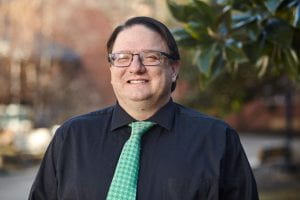CPI welcomes two speakers to our seminar series this summer:
June 16, 2022
 Adam Schlachter – Delaware Department of Natural Resources and Environmental Control (DNREC)
Adam Schlachter – Delaware Department of Natural Resources and Environmental Control (DNREC)
Adam Schlachter has been in the recycling industry for over 25 years working at all levels including local, regional and State. His work at DNREC includes ensuring that solid waste facilities are operating to maximize protection of human health and the environment, educating and creating tools to help residents meet the State’s recycling goals and helping the regulated community be in compliance with State environmental laws.
Universal Recycling in Delaware: How Plastics Interact in a Curbside Recycling Environment
Curbside recycling developed as an efficient and environmentally friendly service that offered large economies of scale to both collection and disposal of waste in a community. As part of this system, most participants separate landfill bound trash from recoverable materials or recyclables. Through widescale adoption of collection by society, a corresponding amount of education needs to be pushed out to help support new collection systems and processes. As we know, plastics are a large part of today’s society, so they are a key piece to any curbside collection program. Many years ago, the plastics Industry developed a classification system, the Resin Identification Code, which has been ‘universally’ adopted. As curbside recycling programs developed as a demanded service in the US and worldwide, plastics became part of the collection scheme. Using identifiers, such as the Resin Identification Code, and a lack of education about what the symbol meant, there is widespread confusion around what can and should be recycled when it comes to plastics. Local, regional, and State governments struggle to effectively communicate what should be recycled and what cannot be recycled when it comes to plastic. We aim to look at strategies that can help to reduce confusion around curbside collection, increase good material going to market and look at strategies that can positively impact plastics recycling and its role in curbside recycling.
June 24, 2022
 Jin Kim Montclare – New York University
Jin Kim Montclare – New York University
Jin Kim Montclare is a Professor in the Chemical and Biomolecular Engineering, Chemistry, Biomaterials and Radiology at New York University. She is performing groundbreaking research in engineering proteins to mimic nature and, in some cases, work better than nature. She exploits nature’s biosynthetic machinery and evolutionary mechanisms to design new artificial proteins. Her lab focuses on two research areas: (1) developing protein biomaterials and (2) engineering functional proteins/enzymes for particular substrates. Dr. Montclare leads the multidisciplinary Convergence of Innovation and Entrepreneurship (CIE) Institute. She has garnered several awards and honors including but not limited to the Air Force Young Investigator Award, ACS Women Chemists Committee Rising Star Award, AIMBE College of Fellows, the AAAS Leshner Fellowship on Human Augmentation and most recently inducted into the National Academy of Inventors.
Engineering Biomaterials and Biocatalysts
Inspired by nature’s biopolymers, we engineer protein materials and biocatalysts. In the area of biomaterials, we focus on designing systems capable of self-assembling into nanoparticles, fibers and hydrogels that can be modulated by external stimuli. We investigate the fundamental self-assembly and molecular recognition capabilities of these systems. These biomaterials when interfaced with other materials, can significantly impact their physicochemical properties including mechanical properties. For biocatalysts, we have engineered enzymes (phosphotriesterases and cutinases) for improved stability, altered specificity and function through conventional rational design, the integration of non-canonical amino acids as well as computational approaches. These methods offer different options for controlling enzyme structure and function, with opportunities for tailormade biocatalysts.

